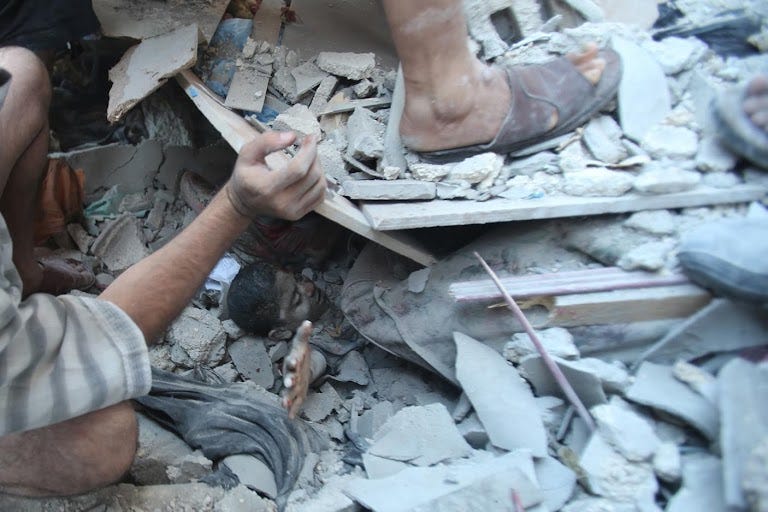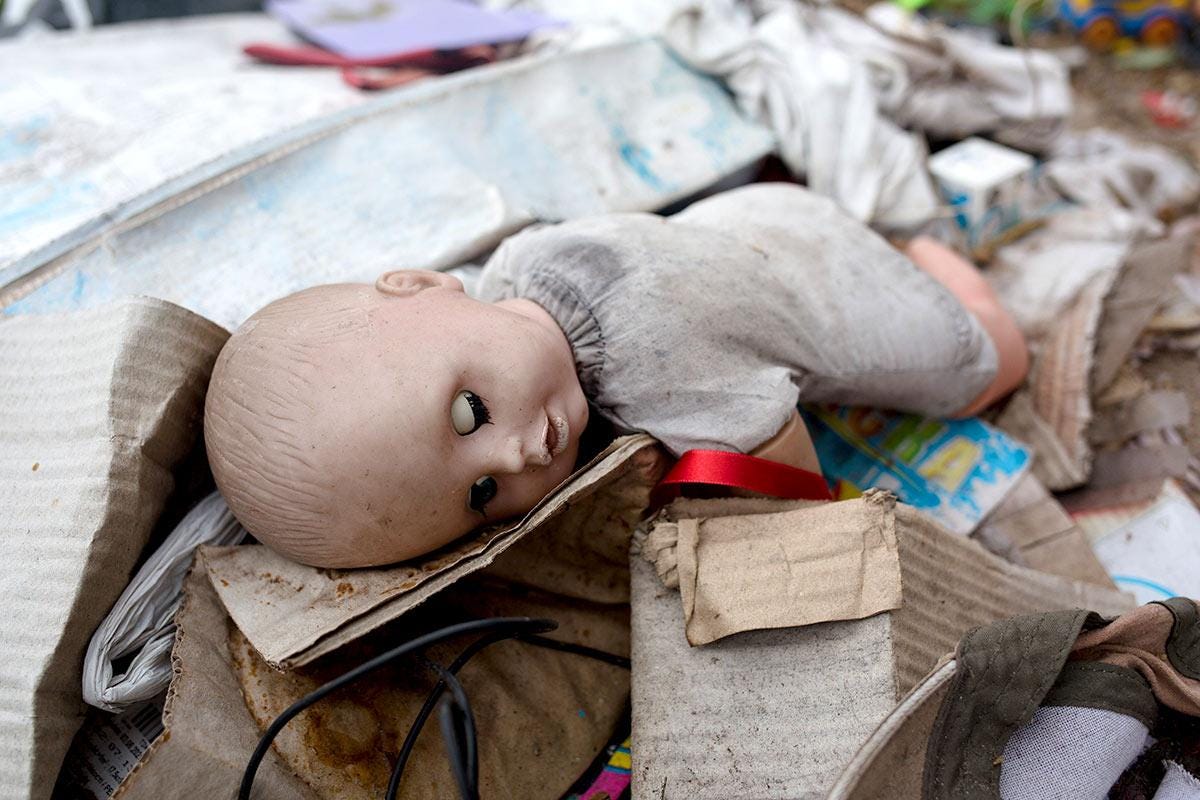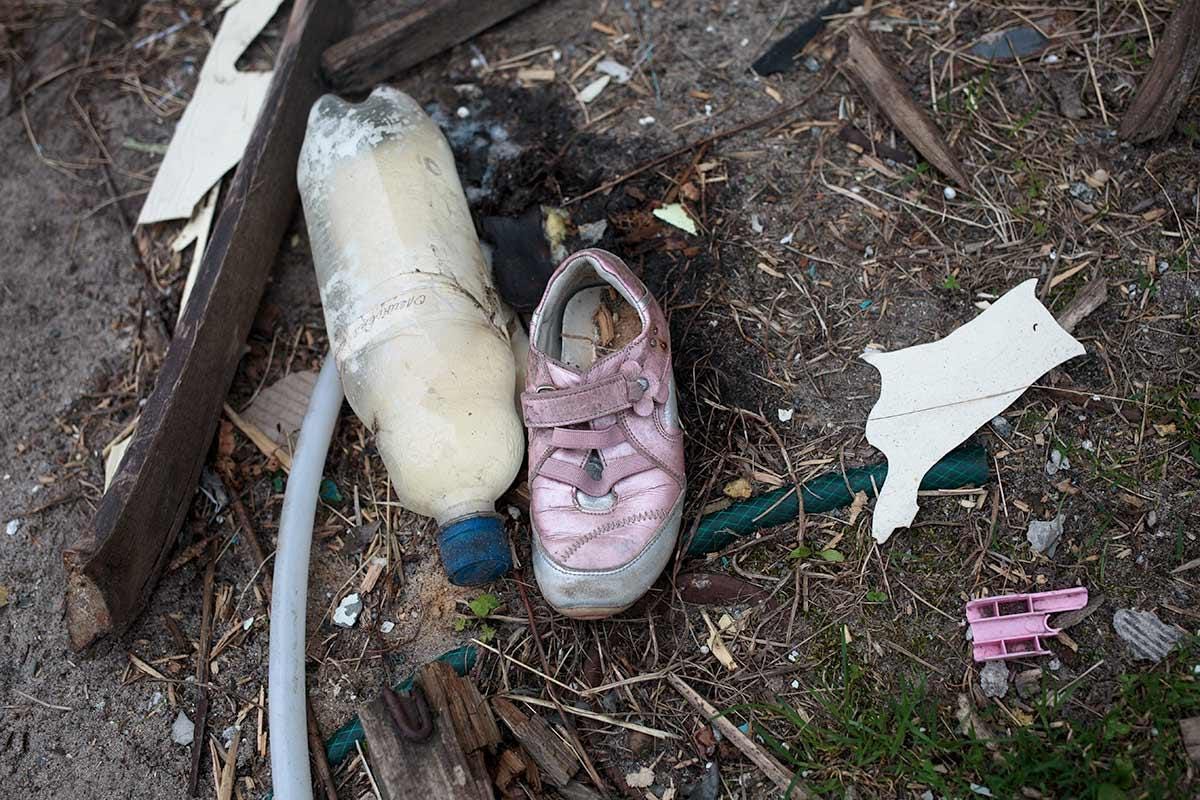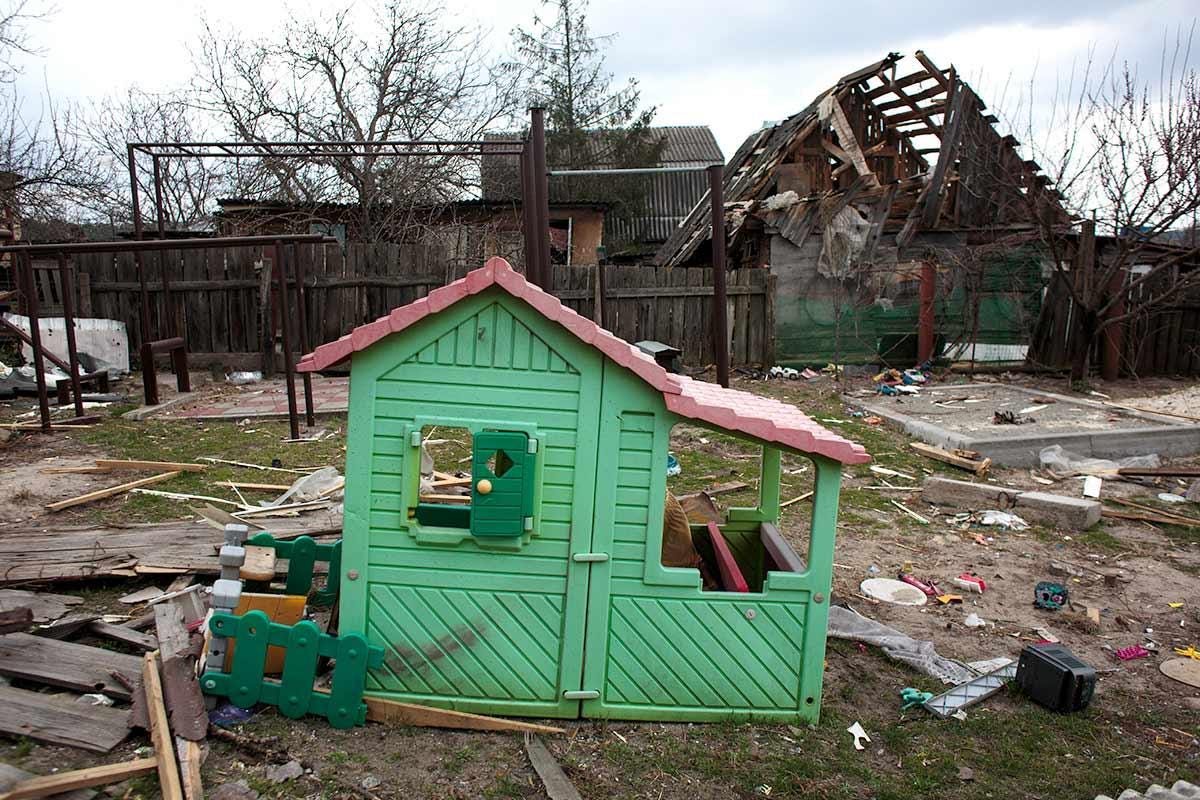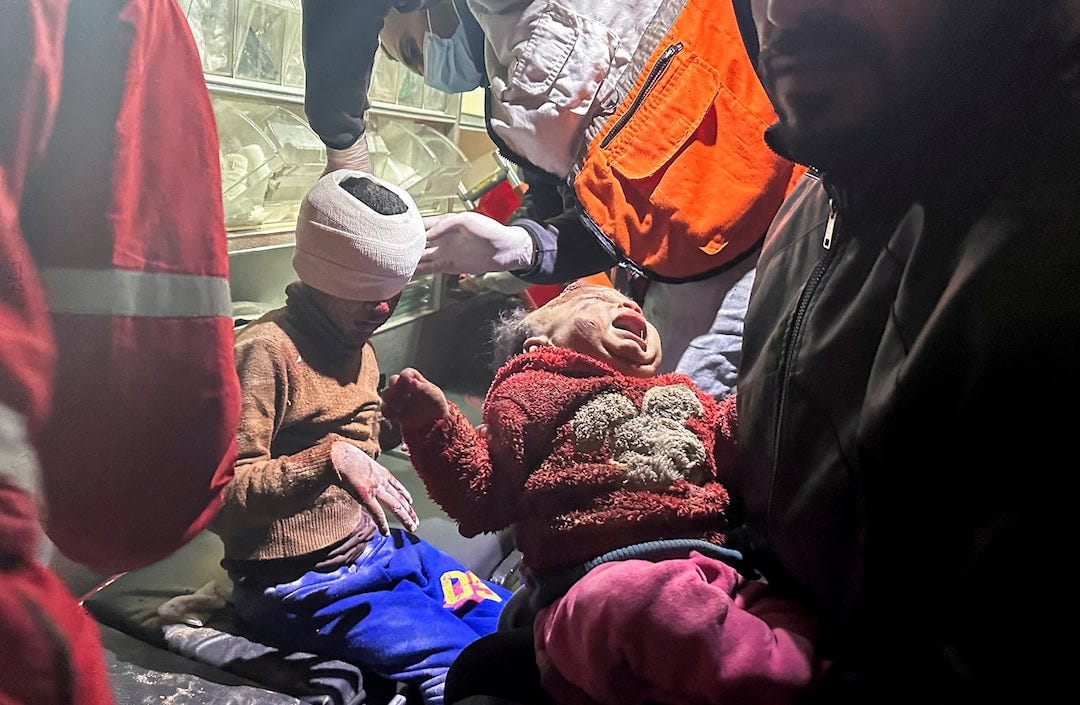They didn’t die for a cause. They didn’t die to prove a point. They didn’t die to teach us a lesson or to become martyrs or to symbolize anything.
They just died.
Some were asleep in their beds when the roof collapsed. Their last moments were not peaceful. They were choking. Gasping in the dark. They cried out for their mothers, for breath, for help that would never come. Rescue teams found them days later, arms curled around stuffed animals or each other, eyes wide open and full of ash.
Some were wide awake. Running. Playing. Laughing. In the middle of tag. In the middle of kicking a ball. In the middle of eating lunch. The missile came anyway. One moment, a scream of joy. The next, just a scream. Bodies torn open. Limbs sheared off. Bones shattered. Some bled out where they fell. Others lay there in shock, whimpering, until it was too late.
Some were in hospitals. Not targets, just already wounded. Burn victims. Cancer patients. Premature babies in incubators. They didn’t die from bombs. They died from the lights going out. From oxygen tanks running dry. From silence in places where beeping machines used to promise a chance.
Some were taking shelter. Huddled in schools, in churches, in tents. Places marked “safe.” Places where parents told them, “you’ll be okay now.” And then the walls caved in. Fire spread. Air turned to smoke. The children clawed at their parents, who clawed at the dirt, who screamed until the screaming stopped.
Some were still holding their siblings’ hands when the shrapnel tore through them. Some didn’t let go.
Do you understand what it means for a parent to dig through rubble with their bare hands, only to find part of their child? Half a face. A torso. A melted shoe. A lock of hair. A backpack with the math homework still inside. That’s it. That’s all that’s left of someone who had just learned to multiply.
These children weren’t combatants. They weren’t threats. They weren’t statistics until someone made them one.
And the world keeps doing it.
Every leader who says “necessary,” every spokesperson who says “regrettable,” every journalist who softens it with words like “clash” or “strike” or “incident”—they are accessories to this violence. This is not an accident. It is a pattern. It is a system. And children pay the price every single time.
They will keep dying. Next week. Next month. Next year. In a different country. Under a different flag. In a different language. But the same death. The same silence.
Because we’ve accepted it. We treat it like weather. We mourn for a moment and move on. We look away from the photos that would make us sick. We say we’re tired. That it’s too complicated. That both sides. That someday, somehow, it’ll stop.
But it won’t. Unless we stop it.
So stop pretending this is okay. Stop accepting children as collateral. Stop explaining away the bodies. Stop nodding along to the lie that this is the cost of anything worth fighting for.
Nothing justifies the death of a child. Not history. Not borders. Not fear. Not religion. Not retaliation. Not defense. Not liberation. Not politics. Nothing.
Not. One. More.
Say it until your throat burns. Say it in the face of anyone who tries to justify one more funeral. Say it like it’s the only thing left to say—because it is.
Not one more.
Not one more blood-soaked backpack.
Not one more crushed ribcage.
Not one more parent digging through rubble, praying to find the body intact.
Not one more hand blown off before it could even write a name.
Not one more baby turning blue in a powerless incubator while the world debates fuel access.
You don’t have to know their names to grieve them. You just have to be human.
So ask yourself this, and answer honestly:
Are you?
This post has been syndicated from Closer to the Edge, where it was published under this address.

